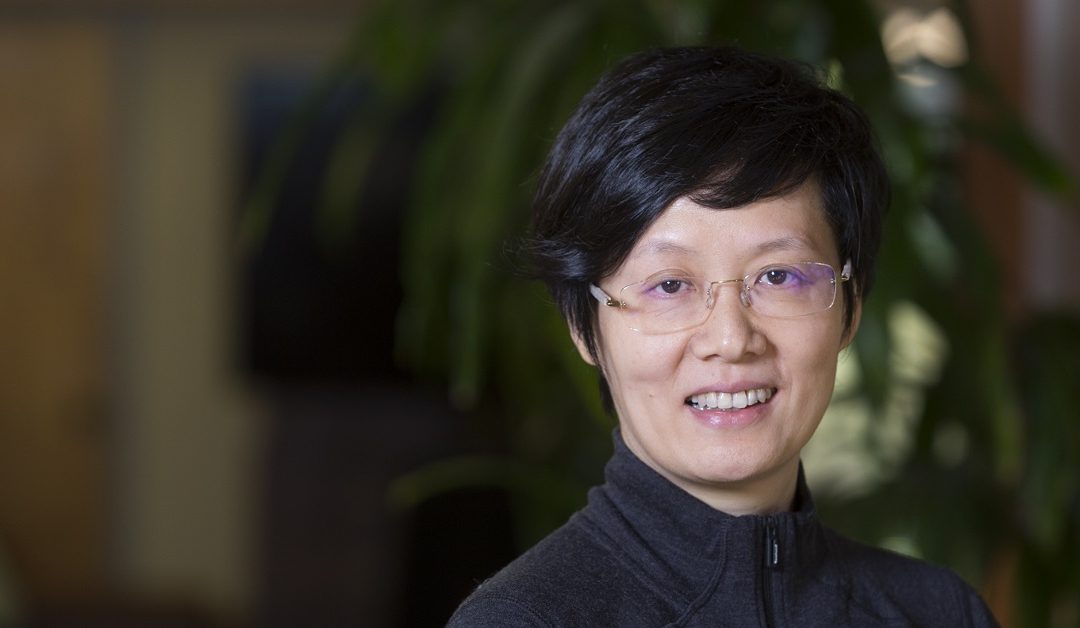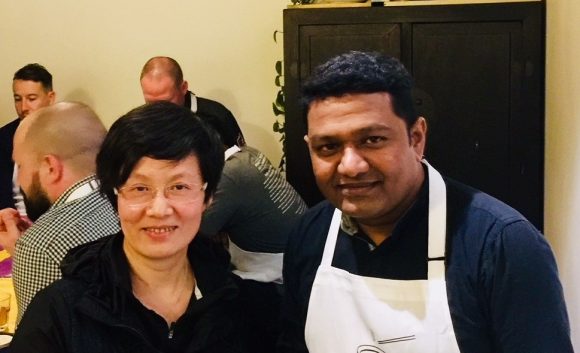By Krista Boehnert. Originally published in the fall 2018 edition of Business Class magazine.
Jane Zhu, MBA ’06, loved the academic side of her MBA program, but more than a decade later one non-course-related element remains a particular standout of her graduate school experience: the strong bond she has with her cohort of fellow graduates.
Classroom camaraderie didn’t happen overnight. In fact, Zhu—who now runs an international travel company, DragonPass, from her native China—credits fellow classmates who organized social events and created an inclusive atmosphere as being the glue that held the group together. As a newcomer to Canada, Zhu greatly appreciated the opportunity to connect with her fellow MBAs and learn more about their cultures, while teaching them in turn about her own.
It’s that spirit of celebrating multiculturalism that prompted Zhu to create an award for current MBA students at the Sardul S. Gill Graduate School. Eligible for the award in their final year of studies, students nominate fellow classmates, or themselves, to recognize their efforts in promoting cross-cultural understanding and awareness during the course of their MBA program. A key emphasis of the selection criteria is evaluating the student’s success at creating opportunities for both domestic and international members of the MBA cohort to integrate, socialize and learn from each other. As such, the Jane Zhu MBA Cross-cultural Integration Award is given to one domestic student and one international student each year. Each recipient receives $1,000 and is publicly recognized at the MBA awards celebration held each fall.
“One of the main reasons I chose UVic for my MBA experience was to be immersed in new cultural experiences and perspectives, and it is extremely rewarding to be recognized for my efforts in this field,” says Ian Carter Edie, MBA ’18 and the 2017-18 Canadian recipient, who originally hails from Calgary, Alberta.
The 2017-18 international recipient, Pawan Gawande, MBA ’18, has found continued application for his cultural integration skills in his new workplace. Says Gawande, “This award was very helpful for me. I am working in a small town, in a close-knit workplace, and it could be very difficult for an outsider to adjust and merge with the group. But confidence from this award and the positive feedback of my classmates was a huge motivational factor for me to put in the effort, and knew I could succeed in a new intercultural group.”
For Zhu’s part, she’s thrilled to see the legacy of her cohort’s camaraderie continue. The cross-cultural lessons today’s MBAs learn from each other—inside and outside the classroom—will help them be better business leaders in a globally diverse world, as her own experiences illustrate.
Support like Zhu’s underlines the central role that international and intercultural learning plays in the MBA program—learning that extends beyond course content and into the social fabric of cohorts.



